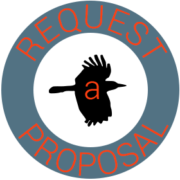The Slow Web Groovy Or Fast Web Frenzy
Make Haste Slowly
The Slow Web Movement has captured my imagination and is ushering me towards an ever-evolving realization that we are free to combine swift efficiency with an aware and measured pace, to shape a more worthwhile online experience. One that will encourage actually remembering what it was that we experienced in those moments that tend to go by. Fast.
…That’s more appreciative of creative forces and deliciously fruitful. That allows time and territories for relationships to build organically with our customers, audience, peers. That provides better and more thoughtful, thorough customer service.
…Helps us to gain more lasting and valuable knowledge; goes beyond information. And doesn’t leave out delightful imagination, savored daydream moments, intensive learning, playful escapades. An experience of discovery. Not nourished by stress. Or ready distraction.
A Deeper Online Adventure
I’d like that myself. What about you?
I crave depth and meaning, …more meaning in everything I do [online]. Intimacy, a more destination-based, interactive experience that stimulates and satisfies. I long to have space to relish the ideas that I encounter, that captivate my mind and my heart. But I seem to be short on time. I’m crazed for time. Too often, there’s a voice in my head that says, “I don’t have time”. I’m tired of hearing it.
That’s an indication I’m in need of a change but not the change you might suspect I’m thinking of. In fact, I am going to turn it on its head. I believe we can create a more meaningful experience and make time itself rich and full by slowing ourselves down, as opposed to speeding up. It will benefit business, not detract from it.
[Tweet “I’m not looking to unplug or disengage.”]
Why Should Fast Define Us?
The web is becoming a pile-up in the fast lane. Assaulting us as we travel at warp speed.
The dilemma exists not only because of how websites are designed and function, although that’s part of it. It’s everything; our multiple devices, apps, popups, endless offers, ads, chat windows, notifications and all the rest- you know what’s keeping you going (and going and going). Fast. It reached wild proportions ages ago and is still gaining speed. And we are fooling ourselves into hoping we are becoming more and more efficient. Sure, in some ways, we are. But.
We are building our websites within a collective consensus that understands we have “givens” that rely on fast. I am not disputing those. They have merit. Efficiency is necessary. Quick load times, visitor attraction, essential information delivered clearly. We need to indicate beyond a doubt that we will give our visitors what they’re looking for when they arrive. And then to move through the sales funnel landing firmly at the buy and the opt-in. We know we need our content to be accurately absorbed and shared. We take measures.
Because after all, we know that one of the primary reasons we are here is to consume. To market, sell and buy.
And we have very little time to do that. As things stand now. Yet, we can increase our gain.
[Tweet “How fast do we have to go to prove to ourselves that what we do has Value?”]
Because sometimes, it seems like that’s what it’s come down to.
Moving fast to assuage our dullness, lack of inspiration or our fears of inadequacy.
(Not dissimilar to keeping busy to avoid what’s really going on in our lives.)
Why do we insist on adopting the mentality that speed is somehow magically connected to quality when, in fact, more than ever, speed can be the very thing that deteriorates value?
What’s The Choice?
David Kutcher, Owner of Confluentforms, in his discourse “Embracing a Slow User Experience”, points out that we do have choices. There are uses for fast pages as well as opportunities for creating slow pages that offer our visitors a place to change pace. Websites need not operate at one speed.
[perfectpullquote align=”full” cite=”” link=”” color=”” class=”” size=””]“…fear of losing our visitor due to lack of attention span is a fear that often causes many websites to err on the side of adding alternatives, or hoping to capture the conversion before the buzzer goes off. But it’s also very well possible that those alternatives are the ones driving the attention disability, interfering with the reader experience, and leading to a shallower user engagement.”[/perfectpullquote]
Are We Really Committed To Everything Happening In Real Time?
We peruse and skim at such speed that our natural perceptions of value are in serious danger of being altered. (if they haven’t already been) We risk convincing ourselves that others are not spending the time nurturing or carefully developing the work they produce and publish. So then, why should we? This goes for content marketing and is even contributing to the glut we love to complain about.
What If We Slow Down And Accept Whatever Speed Happens To Occur Naturally?
We might allow things to matter more. To truly mean something.
We can give ourselves the chance to treasure the experience of creating as well as the experience of consumption.
The Slow Web Movement
In 1986, Carlo Petrini initiated the international Slow Food Movement which eventually evolved into The Slow Movement with Carl Honoré’s 2004 book “In Praise of Slowness”; slow cities, slow living, slow travel, slow design, slow fashion, slow education, slow counseling, slow gardening, slow goods. Media, money, parenting, photography, science, travel, technology….
[perfectpullquote align=”full” cite=”” link=”” color=”” class=”” size=””]”It is a cultural revolution against the notion that faster is always better. The Slow philosophy is not about doing everything at a snail’s pace. It’s about seeking to do everything at the right speed. Savoring the hours and minutes rather than just counting them. Doing everything as well as possible, instead of as fast as possible.” – Honoré[/perfectpullquote]
Geir Berthelsen applied the concept widely with The World Institute of Slowness in 1999 when he envisioned the “Slow Planet”. (I highly recommend a visit to his website) He says,
[perfectpullquote align=”full” cite=”” link=”” color=”” class=”” size=””]“Slowness is the forgotten dimension to time. Unlike chronological time, it is non-linear, time here and now, time that works for you, extraordinary time. So why be fast when you can be slow? Slowness is also about balance, so if you must hurry, then hurry slowly.” “Festina Lente!”[/perfectpullquote]
Festina Lente
- Make haste slowly
- To do things the proper way instead of hurriedly and heedlessly; to see urgent things through in a thorough manner
“What Is Slow?” (You might want to turn on your sound for this 44 second animation…)
Now let’s get back to technology and the web.
In 2010, the Slow Web Movement was born with a built-in kinship to and inspiration from Slow Food. Introduced in a small article written by Rebecca Blood:
[perfectpullquote align=”full” cite=”” link=”” color=”” class=”” size=””] “[W]e need a Slow Internet Movement along the lines of Slow Food and Slow Cinema, if we’re really going to take advantage of the archival nature of the Web. It’s not just about being first and fast and superficial; it’s an opportunity to consider a spectrum of arguments and evidence.” “The Slow Web isn’t about slowing down pages and choking us all back to 1993-era response times. It’s about introducing integrity to pages, and elegance and meaningfulness to how we interact with them.” – Tammy Everts, senior researcher, writer, and performance evangelist at Radware [/perfectpullquote]
Matthew Shadbolt, “On Slowing Down”, 2012[perfectpullquote align=”full” cite=”” link=”” color=”” class=”” size=””] “….[Jack] Cheng characterizes the differences between the Slow and Fast Webs as those between real-time and timely. The real-time web is chaotic, unstructured, and a firehose. The Slow Web is timely, and predicated on the idea that things happen when and as you need them to happen. It’s more about serendipity than search. More about discovery, than results.” “… The Slow Web is built upon insight, knowledge and learning.” [/perfectpullquote]
Years are going by and this movement appears to continue to be somewhat underground, unformed; Google results are still in the handful digits. But we’re dusting it off and bringing it to a wider consciousness, thankfully.
[Tweet “When was the last time you moved in slow-time to read or experience something compelling online? “]
Do you even remember?
[perfectpullquote align=”full” cite=”” link=”” color=”” class=”” size=””]“The Slow Web would be more like a book, retaining many of the elements of the Popular Web, but unhurried, re-considered, additive. Research would no longer be restricted to rapid responders. Conclusions would be intentionally postponed until sufficiently noodled-with. Writers could budget sufficient dream-time before setting pixel to page. Fresh thinking would no longer have to happen in real time….” – Bruce Sterling, WIRED, Dead Beat Media “The Slow Web Movement[/perfectpullquote]
We talk of slow and our online collective need to make a more concerted effort at setting a pace that allows us to prioritize and absorb information more thoughtfully.
Author, Teodora Petkova, writes:
[perfectpullquote align=”full” cite=”” link=”” color=”” class=”” size=””] “Mindful engaging, attention and a healthy connection with technology are among the experiences that feed the concept of the Slow Web.” Matthew Shadbolt:
“Over the past two centuries, humans have had a technological love affair with speed and efficiency. And while it’s true that we’ve always been heavily invested in our relationship with time, the consequences of living in an accelerated digital culture where the world very often appears to many to be stuck in fast forward, are leading some to attempt to reclaim the word ‘slow’ as a positive value. In an increasing world of ubiquitous ‘fast’, the notion of slowing down, savoring experiences, holding thoughtful discussion, and enjoying richer, more nuanced modes of thought in order to be more creative and productive, is itself fast becoming a premium. If speed and efficiency are everywhere, simply due to its economic scarcity, ‘slow’ begins to enter the realm of being a luxury commodity.” [/perfectpullquote]
How about the notion that we can normalize slow, mix it with fast at just the right temperature and incorporate it into an evolved fresh web with fresh behaviors? What do you think?
Are you curious about how that might be?
I’ve included two videos below that I find fascinating. And one for pure fun and entertainment. I encourage you to give yourself the gift of time to enjoy them.
1. “Slow+Film” Geir Berthelsen: (8:32 min)
~ ~ ~
2. “In Praise Of Slowness” Carl Honore: (TED Talk, 20:01)
~ ~ ~
3. Are you feeling groovy? The pot of gold at the end of the rainbow: (1.51min)
Thank you to Teodora Petkova and David Kutcher for the personal inspiration I’ve received from them on this topic.
…I hope we are offering you a richer, unfettered visual and deeper visceral experience on our blog and website..
SUBSCRIBE & Receive Blog Notifications Of New Posts:
* Don’t miss any of our blog posts! Subscribe at the top right of this page.
Google Plus Post Notifications:
* Would you like to be included in my Google Plus Notification Circle?
If you would, please visit the invitation and let me know in the comments with a +mention of my name. Thanks!
Pre-remix image iStockPhoto
We’ve recently installed Google+ Comments.
If you’d like to leave a COMMENT- PLEASE CHOOSE:
‘W’ for our WordPress commenting system,’G+’ for Google+, or ‘F’ for Facebook






